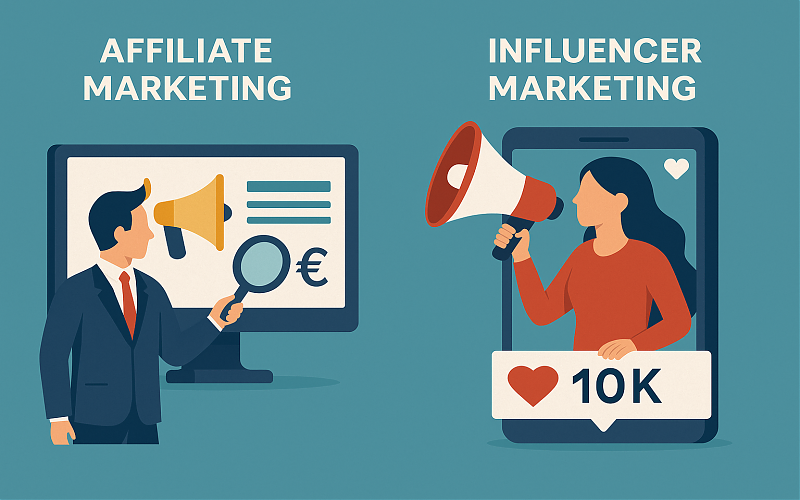Blog
Welcome to our blog! We are dedicated to providing customers with the latest news from our company and the iGaming industry.

Lately, I’ve seen a troubling trend in the Finnish media and regulatory discussions: affiliate marketing and influencer marketing are being deliberately lumped together.
While both are forms of advertising, they are fundamentally different in nature.
Influencer marketing relies on personal charisma and follower manipulation often through social media personalities who promote gambling brands to young audiences in search of quick sponsorship money. In many cases, these “streamers” play on casino accounts funded directly by operators, with no real money being wagered and no winnings ever paid out. It’s showbusiness – not reality.
This is problematic. But it has nothing to do with affiliate marketing.
Affiliate marketing is performance-based. It relies on SEO, analytics, and consumer intent. Affiliates don’t push messages to the general public or to underage users they provide information to consumers who are already looking for it.
Most affiliates are legitimate, ethical businesses operating transparently and responsibly. Take Gambling.com Group, for example – a Nasdaq-listed company with a market cap of over $300 million. This is not some shady underground operation, but a publicly listed media company operating under strict compliance frameworks.
As Finland moves toward licensing its online gambling market in 2027, it’s becoming clear that there’s a coordinated effort to conflate affiliates and influencers. Why? Because banning both can be spun as an act of “responsibility.”
But the real reason seems more tactical: to pave the way for Veikkaus (the state-owned operator) and a few large international companies that can afford to dominate traditional media.
Meanwhile, responsible affiliate businesses the very companies that offer neutral comparisons and informed choice are being sidelined under the guise of ethics.
If Betsson, ComeOn, or Unibet can buy space on Finnish TV and buses… how exactly is that more “responsible” than a regulated, search-based affiliate site that only appears after the consumer has searched for gambling information themselves?
Internationally, we’ve seen far more responsible approaches.
The UK, for example, allows affiliate marketing but strictly regulates influencer content especially when it targets minors or violates advertising standards. Marketing through TikTok? Not allowed. Misleading bonus claims? Banned. But affiliates who play by the rules are not punished.
In Finland, we’re heading toward the opposite: blanket bans on affiliates, while paid ads flood every available media channel.
It’s not about responsibility. It’s about control and ensuring the market stays in the hands of a few dominant players.
Which is truly more ethical?
Allowing gambling ads to appear everywhere like toothpaste commercials?
Or letting consumers find gambling-related content through search engines and curated affiliate sites?
The answer is obvious to anyone thinking beyond surface-level narratives.
What’s happening in Finland is not a move toward responsible gambling. It’s a calculated attempt to restructure the market under the banner of responsibility while removing one of the most transparent and effective channels for consumer education and choice.
Copyright © 2025 Winlandia Marketing OÜ. All rights reserved.